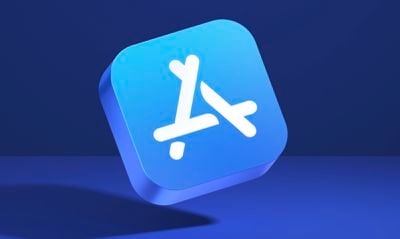Apple CEO Tim Cook testified in the Epic Games v. Apple trial today, and some of the final questioning by Judge Yvonne Gonzalez-Rogers did not appear to go in Apple's favor.

She spent several minutes grilling Cook on Apple's App Store policies and some of the statements that he made. "You said you want to give users control, so what's the problem with allowing users to have a cheaper option for content?"
Cook clarified that by control, he meant control over data, and he told the judge that customers can choose between Android phones and the iPhone.
Rogers was not satisfied with that answer, and asked again what the issue is with Apple allowing customers to buy cheaper V-Bucks (Fortnite's in-game currency) either in-app or by linking out to a website.
"If we allowed developers to link out like that, we would give up our monetization," said Cook. "We need a return on our IP. We have 150,000 APIs to create and maintain, numerous developer tools, and processing fees."
Judge Rogers said that Apple could monetize in other ways, pointing out that games make up most of the in-app purchases. "It's almost as if they're subsidizing everyone else," she said. Rogers used the example of banking apps on the App Store. "You don't charge Wells Fargo, right? But you're charging gamers to subsidize Wells Fargo."
Games are transacting on the platform, said Cook in explanation. He also explained that having a large number of apps available for free increases the traffic to the App Store, creating a much larger audience for gaming apps than would be available if there weren't free apps available.
Judge Rogers said that taking a cut of in-app purchases for games while not charging other apps is a "choice." "There are clearly other options," said Cook. "We think overall, this is the best one." Rogers said that she understands that Apple brings users to the games, but after the initial interaction, game developers are keeping their customers. "Apple's just profiting off of that it seems to me," she said."
"I view it differently. We're creating the entire amount of commerce on the store and we do that by getting the largest audience there. We do that with a lot of free apps, those bring a lot to the table," Cook argued.
"You have no in-app competition on in-app purchases," said Rogers. Cook explained that people can purchase games on other platforms, something that's up to the developer to explain.
Judge Rogers said that she did not believe that Apple lowered its App Store fees for developers making under $1 million because of COVID, instead suggesting that Apple's motivation was the litigation that it is facing. "It was because of COVID," said Cook. "Of course, I had the lawsuit in the back of my mind." Google changed its practices due to competition, argued the judge, referencing Google's decision to also cut Play Store pricing. "You didn't change because of competition," she added.
Rogers then asked Cook about a survey that found 39 percent of developers are dissatisfied with the App Store, which led to some of the most damning questioning of the trial. Cook said he wasn't aware of the survey, but the fact that 40k apps are rejected per week leads to some friction because sometimes developers and users don't have incentives that align with one another.
"It doesn't seem to me like you have competition or feel much incentive to work for developers," Rogers told Cook. She said she hadn't seen evidence that Apple conducts surveys regarding developer satisfaction or makes changes for developers. Apple and Epic will give closing statements on Monday, May 24, which will mark the conclusion of the trial.























